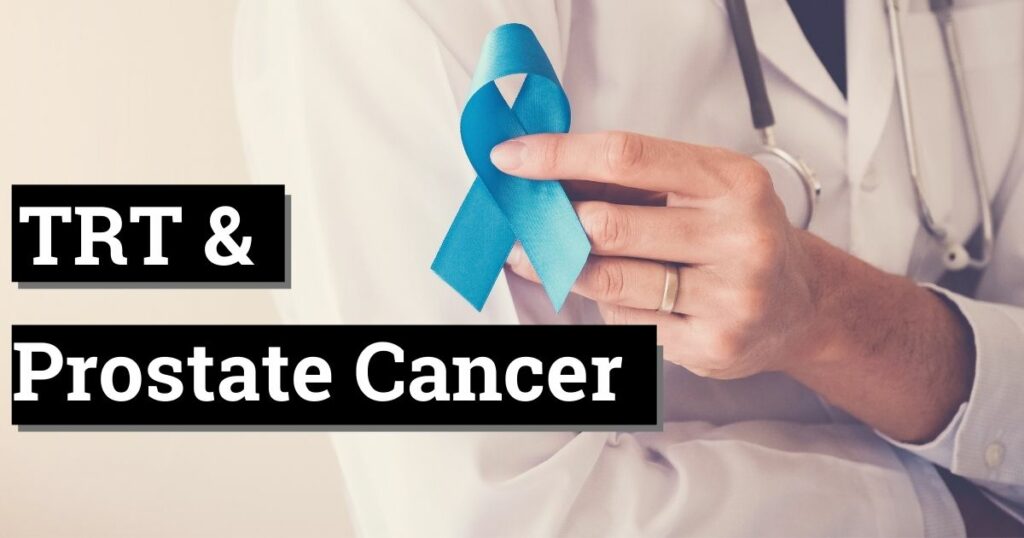Longer lasting erections, stronger orgasms, desire for sex and intimacy: are these missing from your daily life? This all may be a result of low testosterone. It is no secret that talking about sexual health in men has been frowned upon in the past. This has now been displaced with being open and honest with your provider to help get back to your ‘glory days’. The benefits of correcting low testosterone levels affect not only your sexual heath, but can also help in other areas, including better sleep, decreased weight and belly fat, improved cardiovascular health and improved muscle mass. It’s time to get back to feeling like yourself.
There have been several myths with regard to Testosterone Replacement Therapy (TRT) including increasing a man’s risk of developing prostate cancer. Prostate cancer remains one of the most commonly diagnosed male cancers in the USA, with an estimated 191,930 new cases in 2020. This number of cases is expected to rise as the population ages. Testosterone plays a significant role during puberty in the development of reproductive tissues such as the testes and prostate. A man’s prostate produces the seminal fluid that nourishes and transports sperm. Because prostate cancer is so common, some men may question whether there is a link between testosterone replacement and prostate cancer. But according to recent studies, TRT will not increase the risk of prostate cancer. In fact, new research suggests this treatment may actually reduce the risk of aggressive prostate cancer.
“Men who receive testosterone replacement therapy (TRT) had an increased rate of favorable-risk prostate cancer compared to those who did not use the therapy, and a decreased rate of aggressive prostate cancer. “
Prostate-specific antigen (PSA) is a protein made by cells in the prostate gland. PSA is mostly found in semen, but a small amount is also found in blood. Since PSA production is androgen-dependent, the exogenous androgen provided during testosterone replacement therapy may actually increase the likelihood of diagnosing prostate cancers that were being masked by low PSA production in men with testosterone deficiencies2.
According to The Mayo Clinic, there is no proven way to prevent prostate cancer. However, studies show that there are choices you can make to increase your odds of prevention. These include a healthy diet, maintaining a healthy weight, and regular exercise. Don’t be afraid to talk to your health care provider about your risks of prostate cancer.
Testosterone is a critical sex hormone in our bodies that helps build muscle, burn fat, maintain erections, increase libido, and more. But when your testosterone levels start to decline, whether it be because of age or external factors, the symptoms start to appear. Maintaining a healthy testosterone level will help your overall health. It has been studied that the effects of low testosterone in men can be significant and only increase as a man ages. There are many benefits to TRT and increasing a man’s testosterone levels to where they should be.
If you notice any of the following symptoms, you may be a candidate for Testosterone Replacement Therapy:
- Lack of motivation and drive
- Athletic performance decline
- Muscle loss and decreased muscle strength
- Weight gain and belly fat
- Constant fatigue/ lack of energy
- Lack of focus and concentration
- Low sex drive
- Depression and anxiety
- Poor sleep
- Joint pain
- Crabby/irritable
- Brain Fog
- Erectile dysfunction
Do you suffer from Low T? Take the quiz today! Testing your testosterone levels is as simple as a lab draw.




